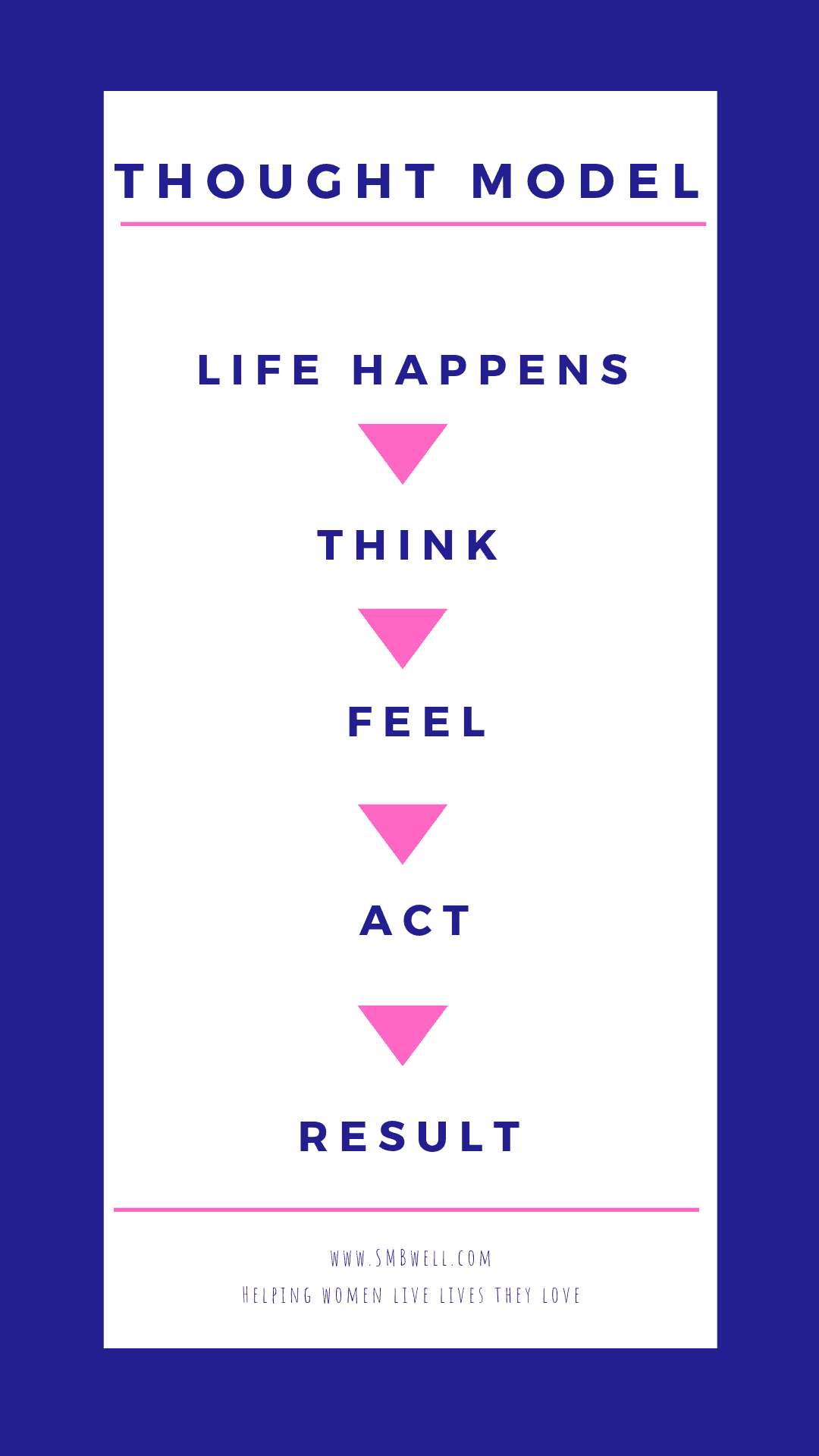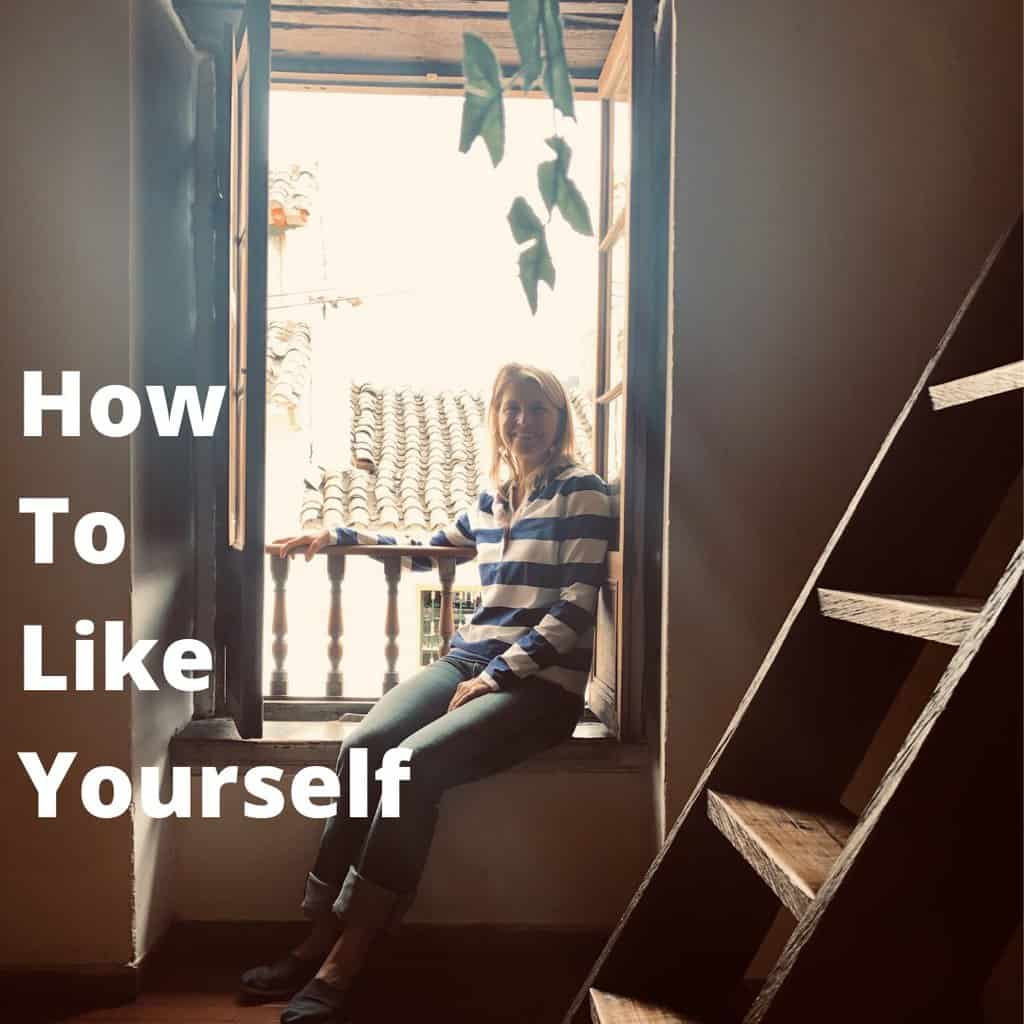Podcast: Play in new window | Download
Subscribe: Apple Podcasts | Spotify | Amazon Music | RSS | More
There is no other relationship that affects your wellness more than the relationship you have with yourself. If you don’t like yourself, you’re less likely to feed yourself food that nourishes and brings joy to your body. If you don’t speak kindly to yourself, you allow others to speak unkindly to you. If you don’t think your needs are important (or at least as important as those around you), you’re unlikely to carve out time to do the things that bring you joy. If you don’t think highly of yourself, you’re likely to tolerate relationships where they don’t think highly of you either.
How do I know? I lived this. When I was younger, I allowed men to speak to me in demeaning ways because I spoke to myself demeaningly. I was told my opinions and thoughts were incorrect and so, if someone questioned my decision, I would change my mind because I questioned my decisions. For sure, the way that I was raised greatly influenced this. My parents devalued my opinions and I was programmed to believe that my needs didn’t matter. That said, I am an adult now and my relationship with myself is in my hands.
How Do We Start to Like Ourselves?
How do we start to change this? How do we like ourselves? Let’s make this the year, the decade that we stop talking meanly to ourselves about ourselves. Make this the year we learn to like ourselves.
How or where to start? I like to start with an open mind. A willingness to look at where growth is possible. The more open we are to learn about ourselves, our patterns, our triggers, and the way we show up in this world, the better we’ll be able to craft a life we love.
4 Steps to Be A Better Friend (to yourself!)
1. Awareness:
The first piece of change or growth is awareness. We can’t change what we’re not aware of. Put on your detective hat to learn and look at the current state of your relationship with yourself. The best way to start is to throw a pad of paper in your daily bag. Every time a negative thought comes up, write it down. This will be hugely impactful. When I did this, I couldn’t keep up! I honestly couldn’t write them all down. I had so many negative or critical thoughts that I couldn’t stop every time to write them down. That’s okay. It’s a start.
One objective of this step is to become aware of what you’re telling yourself. A second benefit of writing our negative thoughts down does is that it gets them toxic thought out of your head. When you write it out on paper it loses its’ power. When it’s just circulating in our head we tend to think it over and over again, sometimes even adding details or evidence. Get it out.
2. Draw a Line in the Sand:
Decide to stop. Pull on whatever knowledge or research you need to in order to motivate you to start talking nicely to yourself. As we know from the thought model, the thoughts we’re thinking are just sentences in our head. They’re not necessarily true. When we’ve been thinking them over and over, we become to believe them and even defend them.
This looks like you saying (and believing) “I’m lazy” or “I’m shy” or “I don’t finish things”. These are not facts in the same way “I have blue eyes” is. Rather, they are sentences we’ve come to believe either because others have put them in our head (a parent? A teacher?) or we’ve thought them often enough (eg “I’m lazy”) that our reality begins to support our thought. Why? Because of the thought model and the think, feel, act, result loop.
When you think the thought “I’m lazy” how do you feel? What do you do? What results do you see in your life? The results we have always lead back to support the thought we’re thinking. When we don’t know how our brain works or about emotional intelligence, we see our reality as evidence that our thought is true instead of viewing it as evidence that our thoughts generate our feelings which lead to the actions (or inactions) that we take in our life. For now, draw a line in the sand. Choose to no longer tolerate your abuse. Choose to speak differently to yourself. You may not know how and you may not believe you deserve to be treated differently yet. That will come. Draw a line in the sand and choose to start.
3. Stick up for Yourself
Once we become aware of our thoughts and we choose to stop the abuse, it’s time to start replacing the negative, unhelpful thoughts with ones that are kinder and that we believe. This step is all about starting to talk back and to sticking up for yourself to yourself. When you hear yourself being critical, say things like:
“I hear you but I am choosing to not think that thought now” or
“I’m sorry but I’m not going to beat myself up for that right now” or
“I did the best I could. Next time I’ll …”.
I like thinking of my brain like a car and then bringing attention to who’s driving the car? Who’s in the passenger seat? Who can I move to the backseat?
4. Feed Your Brain:
Once you start kicking out the mean voice and replacing it with a kinder, gentler friend for yourself, it’s helpful to flood your brain with reinforcement. Bring attention to what you were feeding your brain and consciously choose things that support your positive relationship with yourself.
What are you watching on TV?
Listening to on the radio?
Reading on social media?
Whose voices are you letting in your ear? Friends, co-workers, family members, significant others?
What we let into our world directly impacts our health and the health of the relationship we have with ourself. If we talk to a critical parent every other day on the phone, we are reinforcing the inner critical voice in our brain. If you can never do anything the ‘right way’ for our spouse or boss, it will take extra effort to convince yourself that your way is a fine way. If you’re watching TV that is full of drama and judgment, your brain receives the message that that’s an appropriate way to act and show up in the world. If you’re not listening to podcasts supporting a positive inner relationship, you will downplay the importance of it.
Pay attention to what you’re feeding your brain. You are an adult and you are in charge of the influences that come into your life on a consistent basis. #brainfood #brainhack Share on XThis is a journey. If you’ve been thinking negatively about yourself for a while, it will take a while to switch that neurological pattern. The good news is, it’s like all new habits, slow at first and then growth is exponential. For me, I had spent the first 35 years of my life thinking negatively of myself and thinking I wasn’t good enough. The first week I started shifting my patterning was intense. I deliberately thought on purpose. I carried my notebook around. I flooded my brain with positive input. The second week was a bit easier and the third, was easier.
Today my relationship with myself doesn’t resemble any part of my former relationship with myself. My inner talk is completely different than it was 10 years ago. I actually would have nothing to write in that paper notebook today. Don’t get me wrong, I still struggle with down times. The difference is that I’ve so programmed myself to view my down times with love and compassion instead of criticism and judgement. I can look at the things that happen in my life with a kind eye, learn from them, and grow forward.
Liking Yourself
How does liking yourself impact your life and your other relationships? In every possible way. Today my relationships with other people don’t resemble any part of my former relationships. I am not going to be around people who put me down or criticize me because I don’t put myself down or criticize myself. I expect more of the people around me because I expect more of myself. The people around me uplift and support me because I support and uplift myself.
The universe doesn’t make duplicates. Your exact self is here on earth for a reason. Your exact self, all of you, is exactly as it’s supposed to be. Practice loving yourself unconditionally. It’s time to get started. Throw a notebook in your bag and commit to your most important relationship. You.
Pour love on yourself. Learn about yourself. Commit to making your relationship with yourself the most rewarding, compassionate, uplifting relationship of your life. Everything else will flow from that.
If you want help, I am here. I am passionate about this work because I’ve seen the difference it has made in my life. These are simple but not easy steps and sometimes people need accountability. I am magical at helping women discover their magnificent, unique selves. If I have room in my schedule, I’d love to help you. You’re not meant to do this alone.
For extra support, make sure you’re signed up for my weekly newsletter and that you subscribe to my podcast for enriching brain food.





